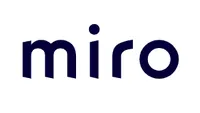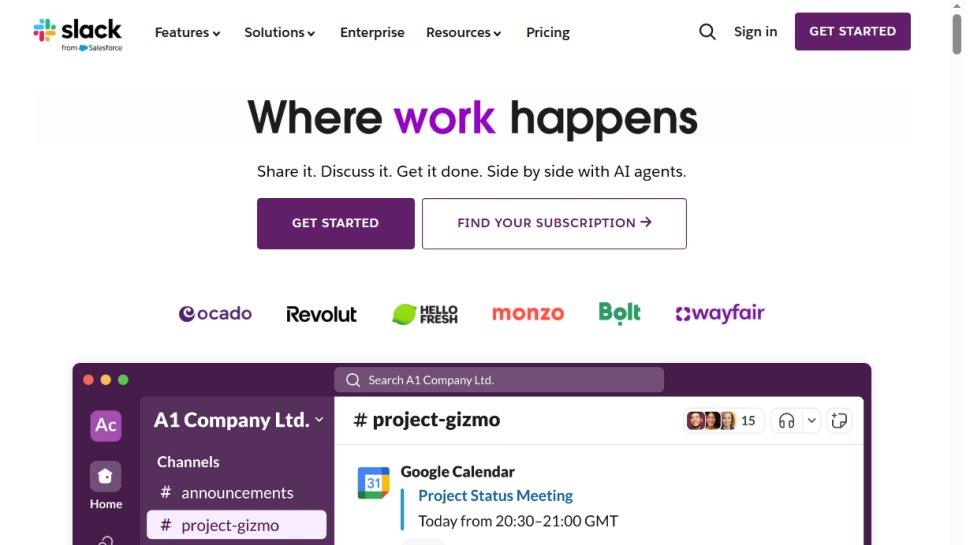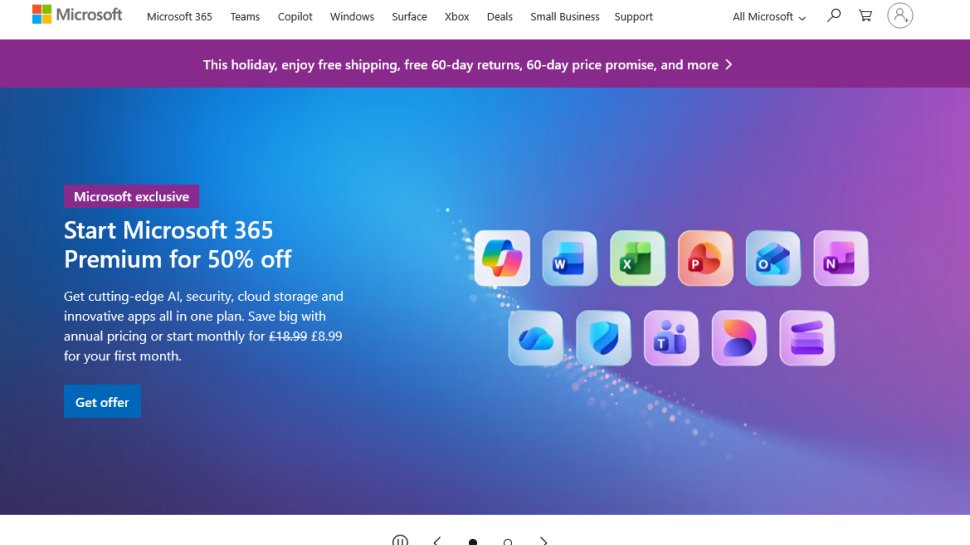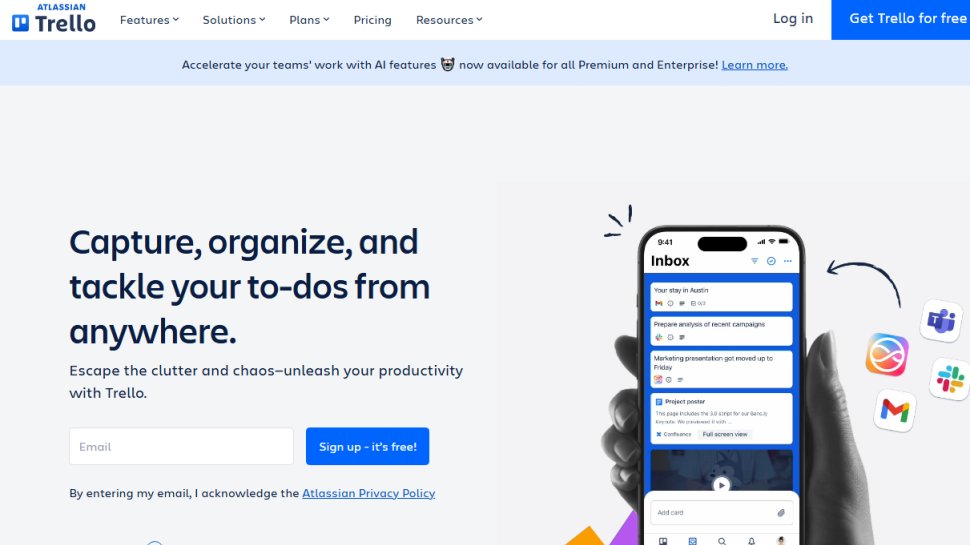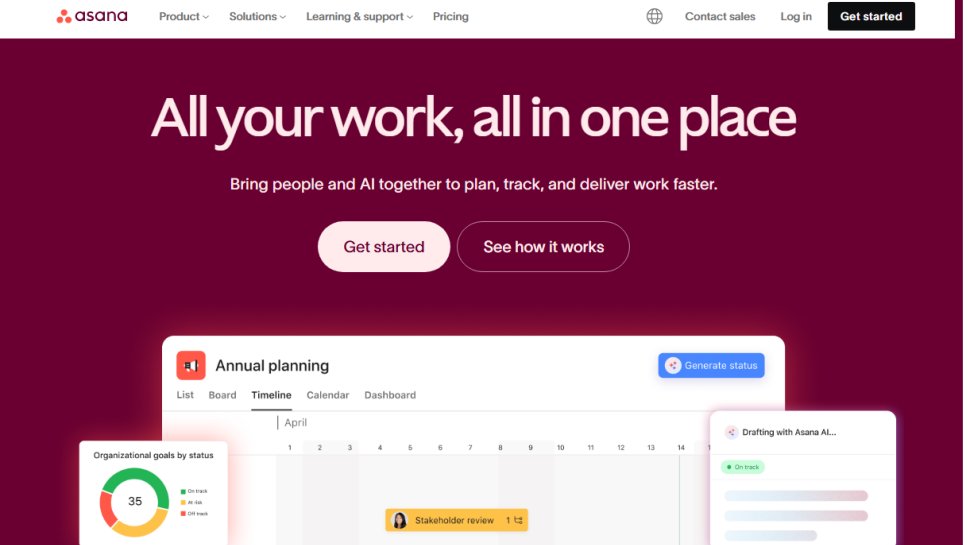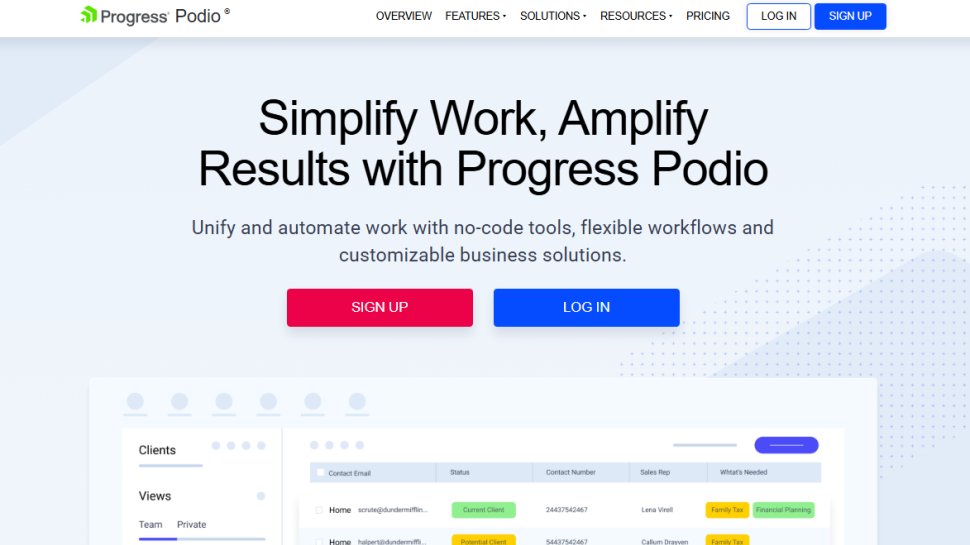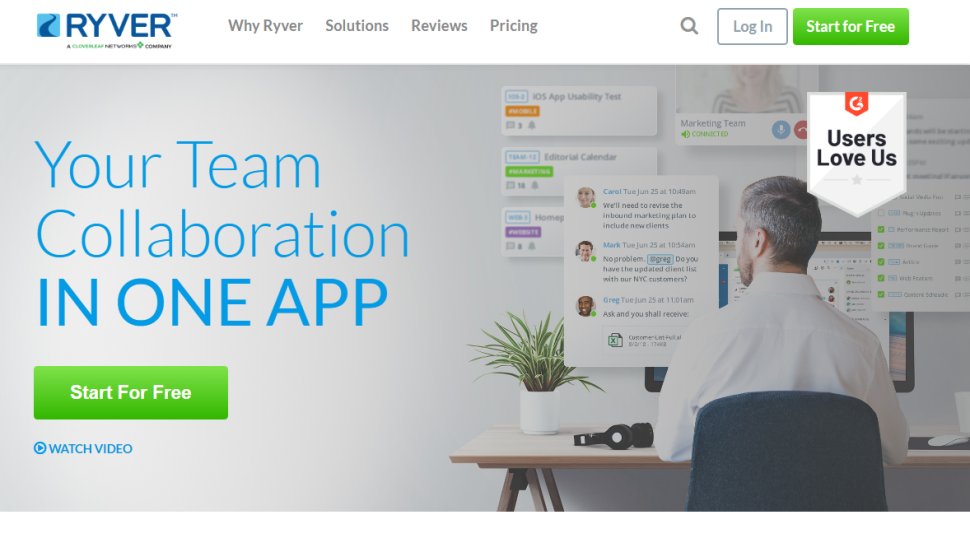Best online collaboration tool of 2025
Improve your teamwork online

Sign up for breaking news, reviews, opinion, top tech deals, and more.
You are now subscribed
Your newsletter sign-up was successful
We list the best online collaboration software, to make it simple and easy to get the most out of your team no matter the distance.
Although collaboration tools had already been set up for office teams, the pandemic and subsequent lock down that saw many people working remotely has lead to a resurgence in collaboration tool features. The result is that collaboration has become the new normal in the workplace.
Since employees can no longer be expected to work from the same location, this means the ability for teams to share, use, and edit files at a distance has become essential for productivity.
However, collaboration tools aren't simply limited to office software such as Microsoft docs and spreadsheets, but could be anything from using cloud document storage for managing daily tasks, to video conferencing for online meetings. Even better is that the best collaboration tools will work just as well on mobile devices as well as desktops and laptops.
Above all, everything should be clear, easy to understand, simply to use and reduce misunderstanding. Every employee should be empowered to be able to speak to the right person, wherever they are in the company, to address the same problem. And then solve that problem within an acceptable workflow.
The days of collaborative working are here, so below we list what we think are the best collaboration tools currently available.
Miro is a collaborative online whiteboard platform designed to help teams brainstorm, plan, and execute projects in real time. With features like sticky notes, templates, mind maps, and integrations with tools like Slack, Asana, and Jira, it enables seamless remote collaboration. You can use the Miro Free plan as long as you want, with as many people as you need.
We've also featured the best task management apps.
The best online collaboration tools of 2025 in full:
Why you can trust TechRadar
Best online collaboration tool for comms
Reasons to buy
Reasons to avoid
Slack is without doubt a mighty collaboration tool, with millions of users around the globe. It’s an incredibly smart platform, and you can get it on mobile and desktop devices. It allows for the sending of direct messages (DMs) and files to a single person or a group of employees, and there’s the ability to organize conversations into different channels (perhaps for specific projects, one for technical support, general chat, and so forth).
The app also supports video calling. You can use the feature to talk to your colleagues about projects and work in-depth, without having to type everything into a DM. While this isn’t a replacement for cloud storage services, you are able to drag, drop and share files with your colleagues directly within Slack. It’s also compatible with services such as Google Drive, Dropbox and Box.
To round things off, Slack even has a free version, although unsurprisingly it has limitations (in terms of the number of messages stored, overall storage space and so forth).
Read our full Slack review.
Best online collaboration tool overall
Reasons to buy
Microsoft Office may not be the first platform you think of when it comes to collaboration, but this now runs at the heart of the Microsoft 365 cloud-based office suite.
This is important because Microsoft Office remains the most used and therefore important office suite out there, and while there are competitors such as OpenOffice and Google Workspace (formerly G Suite) they still haven't caught up to the same level of functionality and ease of use.
Therefore as Microsoft Office is likely to be at the heart of many businesses, the move to Microsoft 365 offers a number of advantages, not least the ability for teams to collaborate directly on the same set of documents. This could be anything from work shifts in an Excel spreadsheet, to a presentation in PowerPoint, to client reports written in Word.
Added to this is that Microsoft Teams now comes bundled with a number of Microsoft 365 packages, allowing for Unified Communications integrated with the traditional office software.
What makes Microsoft 365 more attractive is that as a cloud-hosted platform it can be used not just with Windows, but also Mac, Android, and iOS.
Overall, Microsoft 365 doesn't simply offer a great office suite, but one that is also firmly designed for collaboration and sharing with teams.
Read our full Microsoft 365 review.
Our Microsoft discount codes can help you save on your next purchase.
Best all-in-one online collaboration tool

Reasons to buy
Reasons to avoid
Miro is one of those online tools that aims to bridge the gap between traditional office working and the modern hybrid routine that many of us are familiar with. It is best described as a multipurpose online collaboration tool, and its list of features is pretty extensive stretching beyond the typical realms of similar software.
The majority of the work you’ll end up doing in Miro will revolve around what it calls boards, which start off as entirely blank spaces. Setting one up from scratch can be daunting and time-consuming, which is why the company has designed templates that you can pick from the get-go.
Some of its most commonly accessed templates include mind maps, Kanban boards, flowcharts, product roadmaps, and timelines. Many of these will serve well as project management tools, and anybody familiar with other project management software like Airtable or Trello will already be familiar with how they work.
Overall, we think Miro is hard to beat. Its long list of features should cover all parts of a typical business process from research and design to presentation, and its collaboration abilities are second to none. Furthermore, its transparency around security and reasonable pricing make it hard for us not to recommend it. The only thing we could wish for is better support channels.
Read our full Miro review.
Best online collaboration tool for organizing
Reasons to buy
Reasons to avoid
If you have ever looked into project management software and online collaboration tools, then no doubt you’ve come across Trello. Available on the web and with mobile apps, it lets you easily organize projects and work on them with colleagues.
The platform allows you to work with boards or lists, which can be organized by teams and different tasks. And within these, you can set up to-do lists and delegate amongst colleagues. There’s also the option to assign comments to cards – a quick way to give feedback to others.
Furthermore, Trello boasts a number of integrations with apps such as Evernote, GitHub, Google Drive and Slack. You can download the app for free, but there are premium options available which give access to more features.
The Premium pricing tier unlocks a number of additional administrative features for better organization. There's also an Enterprise edition which is priced according to the number of users required, and provides some additional organizational management features.
Read our full Trello review.
Best online collaboration tool for tracking
Reasons to buy
Reasons to avoid
Asana has been around since 2008, making it a veteran in the collaboration arena, and companies such as Intel, Uber, Pinterest and TED all use it as their core method of communication.
It’s been designed as an easy way for companies to track the work of employees and to get the best possible results. Using the platform, you can create to-do lists for ongoing projects, set reminders for upcoming deadlines and send requests to colleagues. Team members can also assign comments to posts within the app.
You can organize all your projects in a list or board format, and there’s a search function so you can locate past work quickly. In short, Asana is a very effective way to stay super-organized and facilitate conversations when it comes to updates on how work is progressing.
Read our full Asana review.
Best online collaboration tool space
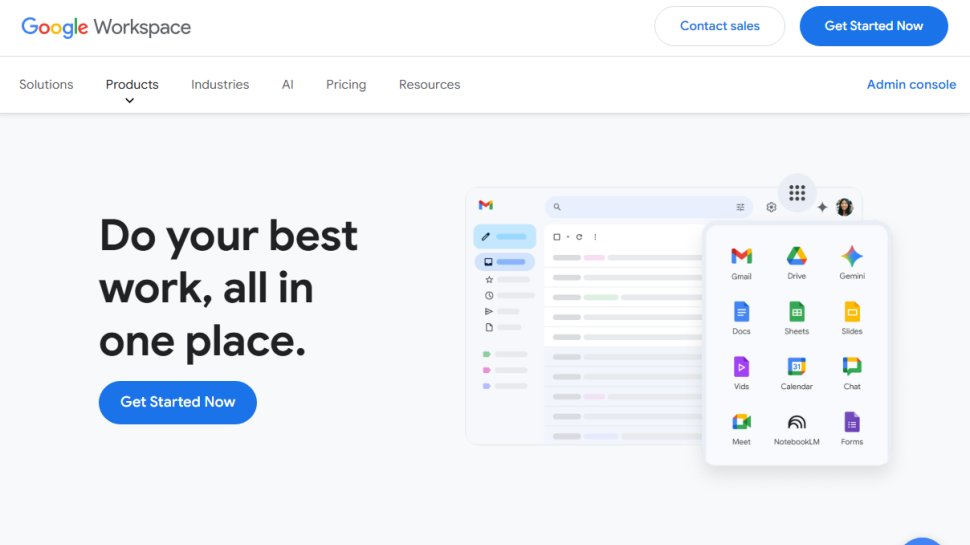
Reasons to buy
Reasons to avoid
Google Workspace (formerly called G Suite) is Google's answer to Microsoft 365, and more. This is one of the best platforms you can choose for an organization because it comes with a lot of features.
Think of this software as the enterprise version of all the popular Google tools you use. For instance, you can create custom business emails for staff that uses the same interface as the popular Gmail app. People can create and edit documents collaboratively on Google Docs; you’ll see any changes in real time, and anyone is free to make comments and suggestions for any changes.
There's Meet, a video-conferencing solution for enterprises; this tool for valuable for colleagues to stay in touch with each other, especially for remote companies. There’s also Google Chat, a messaging tool for enterprises; Google Drive for file sharing; Google Sheets for spreadsheets; and a shared calendar tool that enables colleagues to keep tabs on each other’s schedules. These tools are what you’ll get access to as a Google Workspace subscriber.
A Starter plan includes 30GB storage per user and a maximum of 100 participants in video meetings. The Standard plan includes 2TB of storage and up to 150 participants in video meetings. The Plus plan includes 5TB of storage per user and up to 500 participants in video meetings. There's also an Enterprise plan that offers as much storage and video meeting participants as you need; this plan has no standard pricing, so you'll have to contact the sales team for a quote.
You can save on your Google Workspace subscription with our Google Workspace promo codes.
Read our full Google Workspace review.
Best online collaboration platform
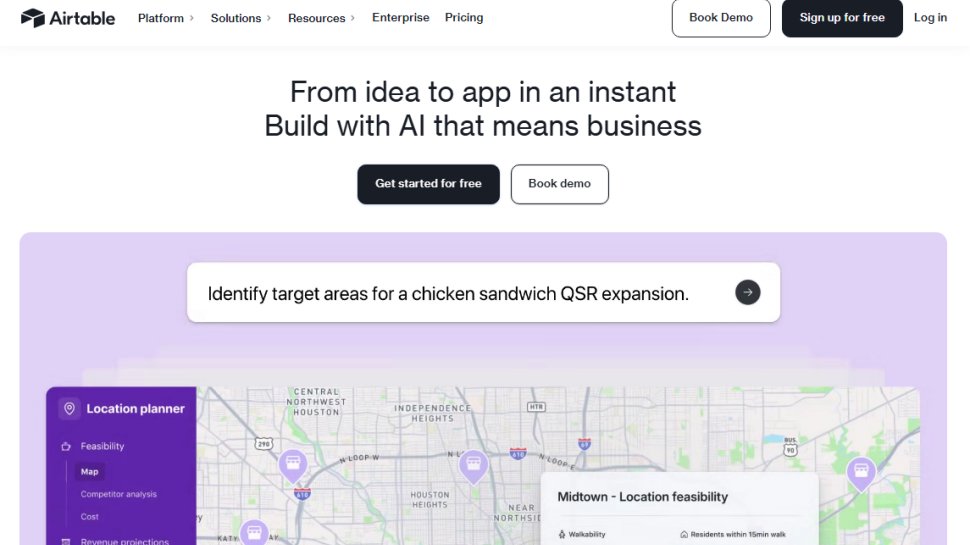
Reasons to buy
Reasons to avoid
Airtable is a platform that supports extensive online collaboration and project management. You can use it to share data seamlessly within an organization for people to collaborate. This platform has extensive third-party integration, so you can sync data from other apps and ensure it is always up-to-date.
Airtable is not just a standalone collaborative tool. It is actually a platform on which people can build collaborative apps. It touts itself as “low-code”, meaning you don’t need sophisticated programming skills to build apps on it, although a little will help. Anyone in your organization can build an app on Airtable to foster collaboration.
You can start with the free plan, which has limitations on the file sizes and the number of collaborators. Thus, you’ll need a paid plan to maximize your use of this platform, and you can choose from one of three such plans; Plus, Pro, and Enterprise.
The Plus plan supports an unlimited number of users. The limitation is that you'll get a maximum of 5GB space per base (which refers to a project) and a maximum of 5,000 records for each base. The Pro plan increases the storage space to 20GB per base with a maximum of 50,000 records for each base. The Enterprise plan is the highest, giving you up to 1TB of space per base and 100,000 records; this plan has no standard pricing, so you’ll have to contact the sales team for a quote.
Read our full Airtable review.
Best online collaboration tool for mobile
Reasons to buy
Podio describes itself as a flexible and customizable online platform for work and communication among teams. In other words, it gives you a way to organize large stacks of work and to delegate tasks between employees.
Just like many of the other business collaboration apps out there, Podio provides you with the tools to share files, view the status of ongoing projects and get feedback on the things you’re currently working on. These functionalities are combined into an easy-to-use interface.
Podio is also equipped with quality mobile apps for when you’re out and about, and need to use your smartphone or tablet, and it has an impressive amount of integration with third-party services and apps including Dropbox, Google Drive, Evernote and Zendesk.
Read our full Podio review.
Best online collaboration tool for ease-of-use
Reasons to buy
Reasons to avoid
Ryver is similar to Slack, aiming to give your organization a highly effective means of communication, and an easy way to talk over tasks, ensuring that deadlines are met.
What makes Ryver a compelling option is the fact that you can create as many teams as you want within the app, and easily categorize them to boot. As is the case with Slack, you can use the platform to set up chats with groups and individuals.
There are some interesting filters, too. You can control who sees the things you say and post in the app, and obviously enough, join the teams that are most relevant to you. All company posts are located within a Facebook-style newsfeed, and you can mark posts to come back to them later on.
There’s also a host of native clients across mobile and desktop, including Mac and Linux. There's also a premium version for enterprise which offers workflow automation, Single Sign-On (SSO), and advanced team management.
Read our full Ryver review.
Best online collaboration tool for designers
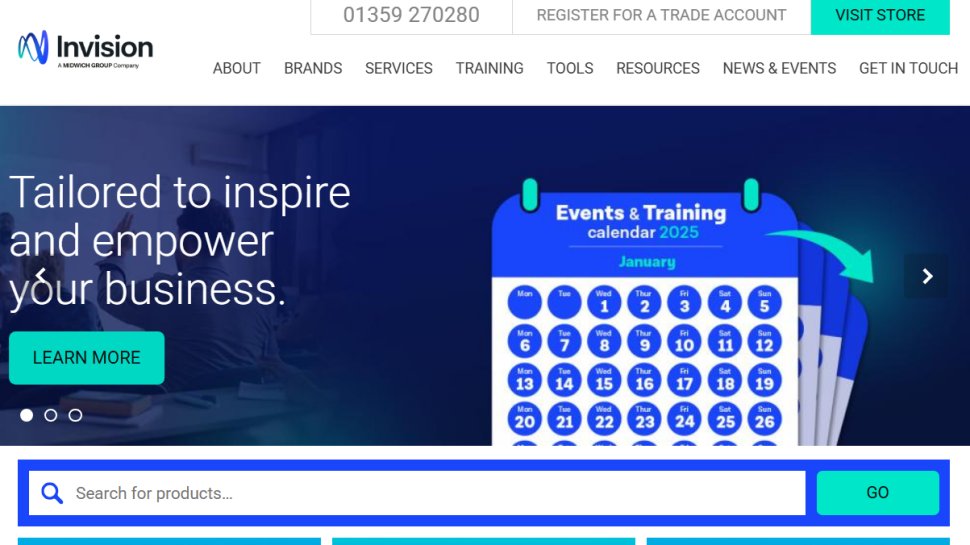
10. InVision
Reasons to buy
Reasons to avoid
InVision is a collaborative tool built for designers. It provides a virtual whiteboard where multiple collaborators can share their design ideas and thoughts to come up with solutions. This whiteboard allows real-time interaction so that teams within an organization can brainstorm about work-related activities.
The whiteboard is called Freehand, owing its name to the fact people usually use their hands to write on whiteboards. In this case, the board is virtual, and you are free to write text while discussing with your team about a work project. You can also add images, photos, videos, etc., to provide context for your ideas.
Sometimes, you’ll need templates to explain an idea to your teammates, e.g., flowcharts and interactive widgets. The good thing is that InVision provides over 200 pre-built templates that you can use for this.
The Freehand tool also has direct integrations with a lot of third-party software. For example, you can open a video chat by connecting to Zoom or Webex or turn your whiteboard ideas directly into tasks on Jira and Asana. If you wish, you can import your existing whiteboards from other collaborative apps, e.g., Miro.
This platform was built mainly for designers but is not exclusive to them. It is also suitable for product teams, human resource (HR) teams, marketing teams, etc.
Other collaborative software to consider
There are many other collaboration tools worth your attention, if nothing else because of the way they apply features differently, or even add other useful features. Here we'll look at some additional online collaboration tools that could be worth exploring further:
Visme is developed specifically for collaborative online reports, presentations, and infographics. Aside from promoting branding support and aiming to reduce design costs, analytics are provided so you can see which presentations and reports result in the most engagement, and adjust accordingly. Visme recommends itself for sales and marketing, HR and recruiting, internal communications, as well as education and in-house training. The software is specifically priced around individual, business, or education use.
Basecamp aims to be an all-in-one collaboration and communications platform, to bring features of multiple software offerings into a single place so that it's easier to sort through information, and, of course, keep it all in one easy to manage place. Features include chat, messageboards, to-do lists and scheduling as well as automated check-in, as well as a single place to store all documents, files, and folders. Unlike other collaborative software that charges per user, Basecamp charges a single fee of $99.99 for unlimited users, which could make it especially attractive to larger organizations.
Wrike is more of a project management and scheduling tool, that makes it easy to see where everyone is in terms of completing a project. As a standalone it might seem quite limited compared to some of the others here, but its strength lies in its extensive range of integrations, which includes Google, Dropbox, Salesforce, Microsoft, Adobe, and Github. This means Wrike can work as a central platform tied to a number of others software apps, allowing you to cover a wider range of options and features than some standalone software options.
Monday.com is a platform that allows you to plan, track, and collaborate on projects in a visually simple manner. Drag-and-drop functionality and ease of use make this a particularly good platform for project management and general workflow management among teams. It also integrates with Slack, Trello, Google Drive, Dropbox, and others, so you can use it a central focal point for teams to work together. As above, these integrations mean that monday.com can be used to achieve a wider working remit than the standalone platform itself.
We've also featured the best small business software.
Best online collaboration tool FAQs
Tips for choosing a suitable online collaboration tool
1. Consider your budget and look for something that’s affordable for your enterprise. If you’re a large organization with a sizeable IT budget, you can go with a more expensive platform that’ll give you access to sophisticated features that you may not even need much. In contrast, if you’re a small business, it’s wise to choose a plan that gives you just the basic collaboration features at a reasonable price.
2. Customer support. Things can go wrong at any time, so choose a platform that offers customer support via email, live chat, or telephone. Check user reviews to see what other people are saying about your intended platform’s support before making a final choice.
3. Look for a platform with a user-friendly interface. This will make it easy for employees of your organization to collaborate instead of losing productivity trying to figure out how to use the software.
4. Choose a platform with a strong security reputation to avoid leaks or theft of sensitive data.
5. Pick a platform that has integrations with third-party tools for additional functionalities that you may need.
Which online collaboration tools is best for you?
When deciding which online collaboration tool to use, first consider what actual needs you have. For example, someone simply wanting to work with a handful of people on a casual basis may find a cheaper option is the most cost-effective while providing all of the necessary tools that would be required. However, if you're planning to use online collaboration tools for professional or business purposes, especially with a large number of people and on a regular basis, then you will probably want to look to the higher-end options for the more advanced options that are included.
How we tested the best online collaboration tools
To test for the best online collaboration tools we searched for a range of popular options as well as took recommendations from people we know who use online collaboration tools regularly. We then tried each platform to see how user-friendly each was, as well as determine what range of tools and advanced options were available. Pricing also came into account when determining our best list.
Read how we test, rate, and review products on TechRadar.
Get in touch
- Want to find out about commercial or marketing opportunities? Click here
- Out of date info, errors, complaints or broken links? Give us a nudge
- Got a suggestion for a product or service provider? Message us directly
- You've reached the end of the page. Jump back up to the top ^
Sign up to the TechRadar Pro newsletter to get all the top news, opinion, features and guidance your business needs to succeed!
Steve McCaskill is TechRadar Pro's resident mobile industry expert, covering all aspects of the UK and global news, from operators to service providers and everything in between. He is a former editor of Silicon UK and journalist with over a decade's experience in the technology industry, writing about technology, in particular, telecoms, mobile and sports tech, sports, video games and media.
